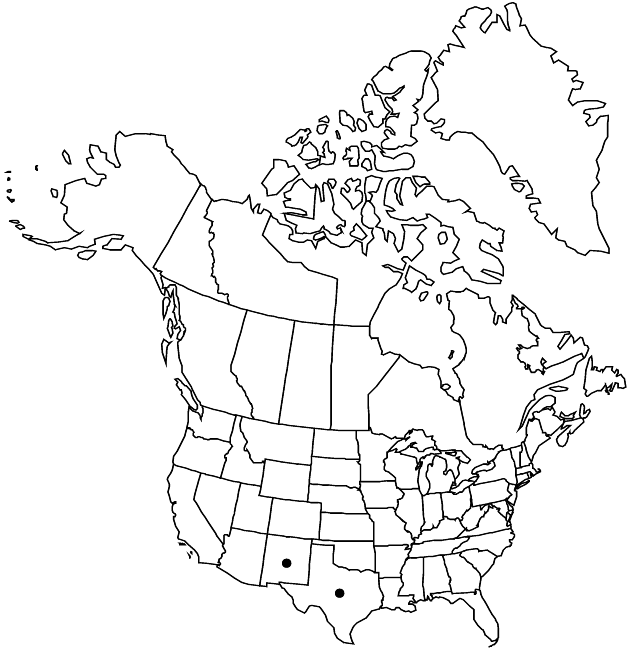Chaptalia texana
Leafl. Bot. Observ. Crit. 1: 191. 1906.
Leaves petiolate (petioles 1/8–1/3 lengths of blades); blades obovate to ovate or elliptic or sublyrate, 3–21 cm, margins lobed to denticulate, abaxial faces thinly gray-tomentose, adaxial faces green-glabrate. Heads nodding in bud and fruit, erect in flowering. Peduncles ebracteate or bracts 1–2, 13–34 cm at flowering, 16–46 cm in fruit, not dilated distally. Florets: outer pistillate, corollas evenly cream colored, turning crimson, laminae 0.2–0.8 mm wide; inner florets bisexual, fertile. Cypselae 11.5–13 mm, beaks filiform, lengths 1–1.6 times bodies, faces sparsely to moderately papillate (bodies and beaks). 2n = 24.
Phenology: Flowering Mar–Jun.
Habitat: Slopes in thin, rocky (limestone) soils, usually in woods with abundant oaks
Elevation: 200–1500 m
Distribution

N.Mex., Tex., Mexico (Chihuahua), Mexico (Coahuila), Mexico (Nuevo León), Mexico (San Luis Potosí), Mexico (Tamaulipas), Mexico (and others)
Discussion
Selected References
None.